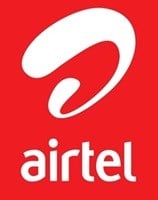Airtel Africa appoints RAMP

"The new mobile advertising proposition will open up mobile advertising to local, Pan-African and global brands and advertisers, giving them the opportunity to reach and engage consumers in several of the continent's best performing economies," says André Beyers, Airtel Africa's chief marketing officer.
Turnkey mobile media business
Raymond Buckle, RAMP joint CEO, says RAMP is a newly formed joint venture of established African companies, which includes SilverstoneCIS, Integrat and Airvantage. RAMP, together with local partners in the 17 markets, offers Airtel the sales, operations and technology capability for a turnkey mobile media business.
"The agreement has recently been finalised and roll-out is taking place in a phased approach beginning with Nigeria and Kenya, followed by Ghana, Tanzania, Zambia and Uganda during the first half of 2014. The Airtel/RAMP mobile advertising proposition is ground breaking in its ability to deliver on the promise of integrated mobile advertising campaigns across the continent."
Michael Laws, RAMP joint CEO, says RAMP's solution will offer mobile advertising inventory from text tags on please call me messages and service notifications, to voice and mobile internet advertising opportunities, along with a permission-based marketing platform to interest based communities.
"We've consolidated a team of mobile media and advertising specialists who have successfully launched and operated mobile media propositions across various African markets and several major brands will be launching with RAMP in 2014," he says.
Mobile in Africa
Contextualising economic and social changes on the continent brings into focus the importance of the first Pan African mobile advertising solution rolled out firstly for Airtel, and then on to other mobile network operators, Buckle says.
Africa has six of the ten fastest growing economies globally, averaging a GDP growth of five percent. Half the African population is under 20 and by 2050, 25 percent of the world's workers are expected to live in Africa.
On an access level, mobile penetration dwarfs fixed line penetration as well as traditional media penetration like TV and radio. Africa had the second highest number of mobile connections globally in Q3 of 2013, according to the Ericsson Mobility Report with mobile penetration now sitting at 73% and growing all the time.
While mobile penetration is on the up, 86% of those connections were 2G connections by the end of 2013, according to the GSMA, with smartphones penetration sitting at four percent at the end of 2012. This is expected to shift dramatically by 2019 with HSPA connections expected to account for 70% of mobile phones in Africa.
The GSMA report predicts that the mobile ecosystem will almost double from US$60B in 2012 to US$119B by 2020. The net impact of this growth will be unprecedented growth in demand for goods and services from an expanding mobile middle class, which will lead to mobile becoming even more dominant as the main communication platform in Africa.
Mobile media underutilised
Looking at the opportunity in Africa, Buckle says it's clear that mobile penetration in Africa is increasing and yet, mobile media has been underutilised.
Buckle says RAMP's offering is unique in that it offers access to a Pan-African audience providing an end-to-end solution that includes access to Airtel customers as well as the technology solutions for customers to effectively communicate with brands.
"Right now the way to reach the African population is not primarily through mobile internet services from the likes of Google and InMobi due to the low penetration rates of the mobile internet on smart devices in Africa currently.
"USSD is the dominant communication technology used in Africa for mobile marketing and communication followed by SMS. A combination of these two technologies is the most appropriate for an African context, giving the greatest reach to an African audience," he says.
Initially RAMP will be working with large corporates, agencies and media buyers who are looking to roll out country wide campaigns or campaigns across several countries. However, RAMP plans to automate the booking process, which will ultimately lead to a self-service offering where smaller companies will be able to launch mobile marketing campaigns directly, on a far more micro, localised level.





















